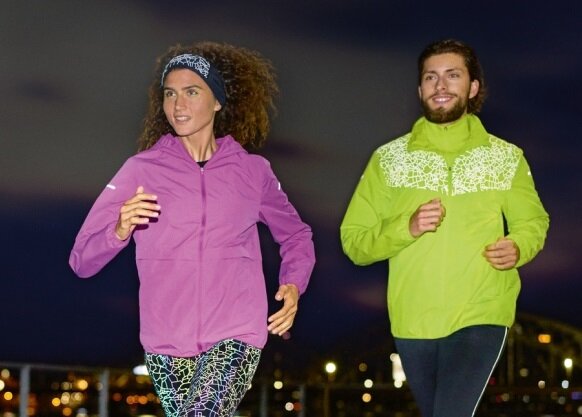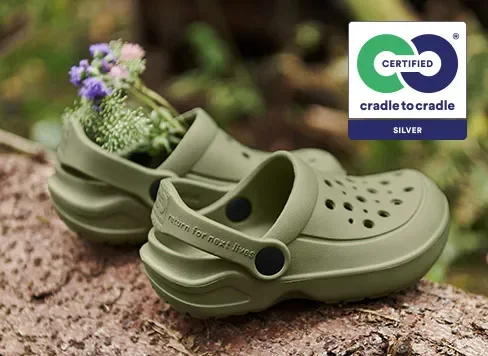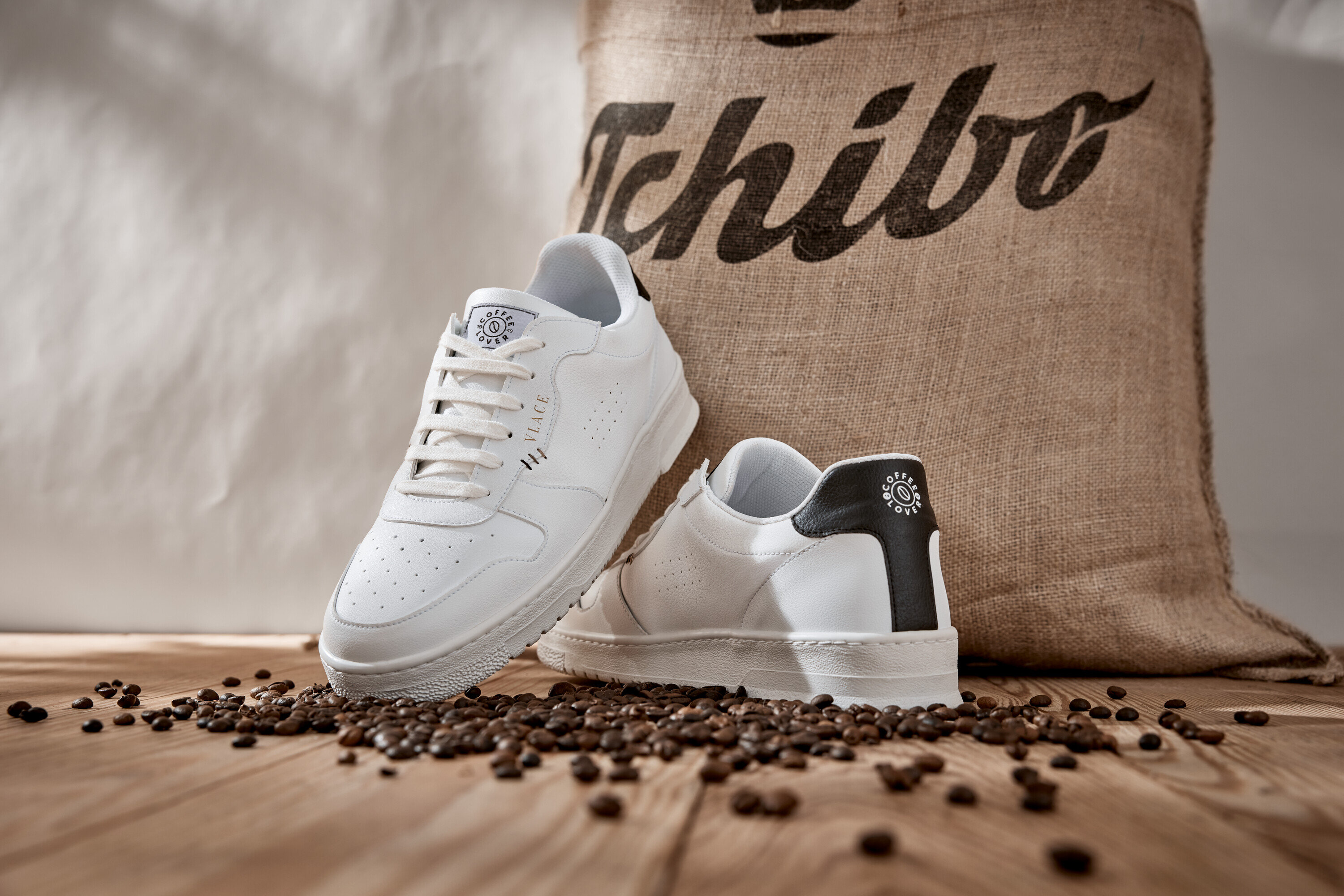Circularity
Recycle
We should use our valuable materials for a long time, reuse them often and recycle them in order to significantly reduce the burden on nature. This applies not only to products, but also to their packaging. Recycling and reusing materials not only saves energy and other resources, but also reduces the high volume of waste. We use recycled materials to close the material loop and promote the demand for recycled materials in the supply chain. The recyclability of products and packaging after use also plays an important role.

Use of recycled materials in our products
51% of our textiles with synthetics as the main material came from recycled sources in 2022 - a significant increase compared to the previous year (2021: 31%). In 2023, however, the proportion fell back to 30% due to costs. The fact that the yarns used made from recycled material are certified with the Global Recycling Standard (GRS) or Recycled Claim Standard (RCS) means that we can prove exactly how high the proportion of recycled material is in each of our products.
We are testing innovative approaches in selected projects to increase the proportion of recycled material used in our products:
Textile-to-Textile (T2T)
Textile-to-textile (T2T) recycling refers to the reuse of discarded textiles (post-consumer waste) or textile waste generated during production (pre-consumer waste) to manufacture new textile products. This is also where we are focusing our efforts in a non-food pilot project in 2024: as an alternative to conventional or recycled polyester from PET bottles, Tchibo used recycled polyester from textile waste for four products in its Active collection in calendar week 41/2024. Long-sleeved functional shirts and thermal functional pants, in both the women's and men's collections, were made with a proportion of T2T recycled polyester. The recycled material was produced using an innovative chemical recycling process (“Green Circle” by Jiaren). This process involves producing polyester fibers from recycled textiles in order to conserve resources and reduce the amount of textile waste. The commercial use of recycled polyester from T2T for clothing is currently still in development, with the use of pre-consumer textile waste being more advanced than post-consumer waste. Our goal is to increase the proportion of T2T recycled polyester by 2027 and to promote the scaling of this and other T2T recycling technologies.


Cradle-to-Cradle (C2C)
The olive green Tchibo garden clogs, which went on sale in 2022, were designed for recycling thanks to their mono-material construction. The plastic and dyes have been tested for material health and recyclability in accordance with Cradle to Cradle Certified® Silver. After use, customers can return the clogs to the manufacturer free of charge within four years of purchase, where they can be continuously recycled into new products without any loss of quality.
- Unisex design for adults and children
- The timeless design and robust material ensure a long wearing time
- Cradle to Cradle Certified® guarantees safe ingredients and recyclability
- Product development and take-back partner: German ISA-TRAESKO Group
Within the four years, none of the customers took advantage of the free take-back option and sent the product back for recycling. Possible reasons: Products did not reach the end of their life due to high physical durability or customer communication was not sufficiently visible.
Tchibo x VLACE Coffee Lover Sneaker
Vegan, innovative, produced in Europe, with reused materials: In cooperation with the brand VLACE, we sold a vegan sneaker with coffee leather in February 2025. The so-called "Coffee Lover Sneaker," a unisex shoe, is made entirely without animal leather and consists partly of grape and coffee leather. The brown coffee leather consists of 40% coffee residue, 30% recycled cotton, and 30% water-based PU (polyurethane, plastic). The coffee leather used for this sneaker collection was made with roasting residues from our Hamburg production facility on Süder-/Wendenstraße. The roasting residues would otherwise be thrown away, but here they find a new use! By creatively upcycling production residues, we both avoid waste and reduce the use of resources for the manufacture of new products. The production took place here in Europe. To be more precise, the processing of the coffee roasting residues into leather takes place in Italy, and the shoe itself is then manufactured in Portugal. The VLACE brand collaborates with a family-run shoe manufacturer with 25 employees there, ensuring handcrafted production under fair conditions. In June 2025, our Coffee Lover Sneaker was named the winner in the "Best Vegan Sneaker" category at the PETA VEGAN AWARD FASHION 2025.

Recyclability of our packaging
Our aim is to continuously improve the recyclability of our packaging so that the materials can be reused. In the non-food sector, we are already consistently at over 98%, and we are also continuously working to improve recyclability in the coffee packaging sector.
To preserve the quality and aroma of the roasted coffee, current coffee packaging is made from a three-layer composite material. For Tchibo's recyclable coffee packaging, the plastic layers have been adapted with modern materials so that they can be recognized in the sorting process after disposal by the customer via the yellow garbage can. This means they can be assigned to the correct recycling stream and remain in the material cycle. Tchibo wants to be a pioneer for sustainable and economically viable packaging in the European coffee market and switch to optimized, recyclable composite materials in all sales areas by 2027 (Tchibo brand) and 2030 (rest).
Recyclability of our capsules
Incidentally, the capsules in our Qbo and Cafissimo capsule systems are also recyclable. Our goals: Enable large-scale recycling of plastic coffee capsules, test technology for industry-wide scaling in Germany.
In order for plastic coffee capsules to be recycled, they must first be separated in the waste stream. Together with Nestlé and JDE, Tchibo is investing in optimizing sorting efficiency and has developed the best available technology (BAT). This was successfully tested in 2022 and 2023 at Veolia's sorting plant for lightweight packaging (LVP) in Rostock.
In 2022, Tchibo developed coffee capsules for its Qbo capsule system that are made from 70% renewable raw materials. The material consists mainly of polypropylene (PP), but is made from organic waste and residual oils and fats instead of mineral oil. The raw material content is provided via a mass balance process that is certified by the ISCC PLUS system (International Sustainability & Carbon Certification). The goals here: Reducing the consumption of fossil resources, providing a sustainable material solution.
Waste disposal
Separation, but correctly: materials can only be recycled correctly so that something new can be created from them. Please follow the disposal instructions on our recyclable packaging:
> Our coffee packaging can simply be thrown into the yellow bag or yellow garbage can, including the seal.
> For our Non Food packaging: plastics belong in the yellow garbage can and paper in the blue garbage can.
This is because the materials in our packaging can only be recycled if they are disposed of correctly.
If products can no longer be used, “fair recycling” is important to us. On our website, we encourage our customers to return their used clothing and textiles easily and professionally via the user-friendly take-back system of our partner FairWertung e. V.. Consumers can use FairWertung to find return points for used clothing from the 130 non-profit organizations affiliated with the umbrella organization and thus hand in their used clothing locally. Our customers can also find information on the correct waste separation and free disposal of old electrical appliances, used batteries, lamps and packaging on our website.